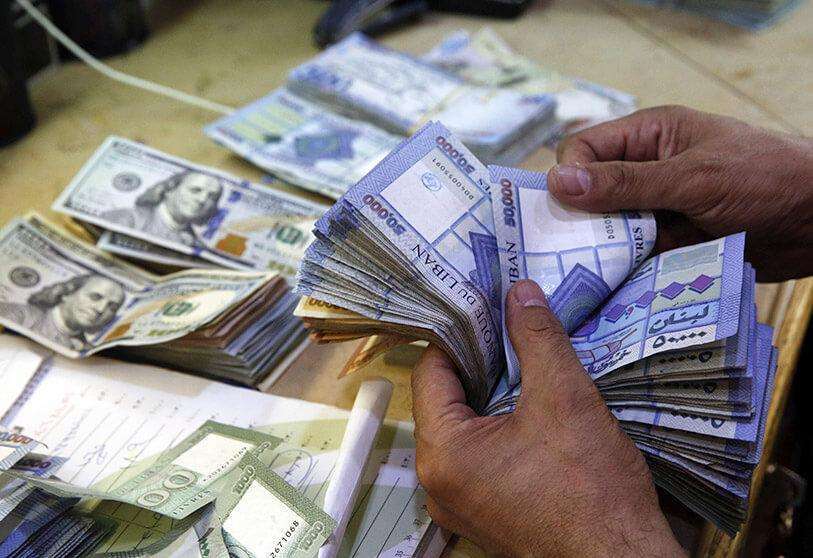US pursues Hezbollah's infiltration of international banking system

The United States imposed a package of sanctions on seven Lebanese nationals for their ties to Hezbollah and the Al-Qard al-Hassan Company (AQAH). Secretary of State Antony Blinken called on all governments to act against the organisation. "The threat that Hezbollah poses to the United States, our allies, and interests in the Middle East and globally demands that countries around the world take steps to restrict its activities and disrupt its facilitation networks," he said.
Among the Lebanese punished by the US Treasury Department are the head of the Central Finance Unit, Ibrahim Ali Daher, who is in charge of raising the group's funding globally, and the company's chief financial officer, Ahmad Mohamad Yazbeck. The remaining five are Abbas Hassan Gharib, Wahid Mahmud Subayti, Mostafa Habib Harb, Ezzat Youssef Akar and Hasan Chehadeh Othman, also charged with acting on behalf of Hezbollah.
In the indictment, the Treasury Department added that the six individuals used their personal accounts in Lebanese banks, known as "shadow accounts", to circumvent sanctions against the Al-Qard al-Hassan banking entity and then to transfer the total amount, which amounts to as much as $500 million, to the Al-Qard al-Hassan banking entity. The company, the financial arm of the Shiite militia, is once again under close scrutiny by the US authorities.

"Hezbollah is abusing the Lebanese financial sector and draining Lebanon's financial resources at an already difficult time," said Andrea Gacki, director of the Treasury Department's Office of Foreign Assets Control. "These actions demonstrate Hezbollah's disregard for financial stability, transparency, or accountability in Lebanon," she said. The organisation also moves funds through shell companies and exposes the country to possible sanctions.
All transactions from the personal accounts of those involved were made through Lebanese banks and were destined for the bank AQAH. The company is not included in the list of banks authorised by the Banque du Liban, nor is it subject to the Lebanese "cash and credit" law, although it registers a large and small-scale activity.
Al-Qard al-Hassan was founded in Lebanon in the early 1980s. AQAH's lending has grown exponentially despite the burden of sanctions. In 2007, the company had a turnover of around $76.5 million, while in 2018 it exceeded $470 million. All of this is aimed at strengthening the Shiite militia economically.

SpiderZ, an anonymous group of hackers, hacked into the entity in 2020 and made public documents detailing how AQAH operated. The files include account information on nearly 400,000 individuals and entities, and expose the company's 'major depositors', namely expatriates, Hezbollah cadres and institutions, Iranian companies and, most importantly, other Lebanese entities that provided services to the bank.
AQAH maintained its relationship with Lebanese banks despite its designation by Washington in 2007 as a collaborator of a terrorist organisation. This is shown by documents exposed by SpiderZ. Banks such as Byblos Bank, Phoenicia Bank, JTB, LCB, Lebanon and Gulf Bank, MEAB Bank and SGBL were part of the scheme. They acted as intermediaries, allowing AQAH account holders to conduct banking activities while concealing their links to the bank's beneficiaries.
Some of the entities involved appeared publicly to deny their involvement. In statements, they denied having held accounts in the name of the AQAH entity, which is technically true. However, Lebanese banking institutions have been exposed as necessary collaborators of the terrorist organisation in its financing. Hezbollah has therefore gained access to the international banking system.

Among the hacked documents are the accounts of the Martyrs Foundation, an association established by Iran after the 1979 revolution, which provides financial support to the families of those killed or disabled during the Iran-Iraq war. The Foundation also channels funds from Iran to terrorist groups throughout the region, notably through its Lebanese subsidiary.
However, the Lebanese banking sector has blocked numerous fictitious and non-fictitious accounts belonging to individuals affiliated with Hezbollah or partially linked to the organisation in order to protect the banking sector from punitive actions by the US Treasury Department, former chairman of the banking supervisory committee Samir Hammoud told Al-Arabiya newspaper.
"Any person whose banking transactions exceed the documented nature of his work and who, at the same time, is emotionally or environmentally associated with Hezbollah is exposed to blocking," Hammoud said. "Since the good loan was placed on the US sanctions list, we have taken steps to close most of the fake accounts that may be linked to them, and when Jamal Trust Bank was placed on the sanctions list in 2019, we discovered that there were fake accounts linked to the good loan, so we quickly closed them."








